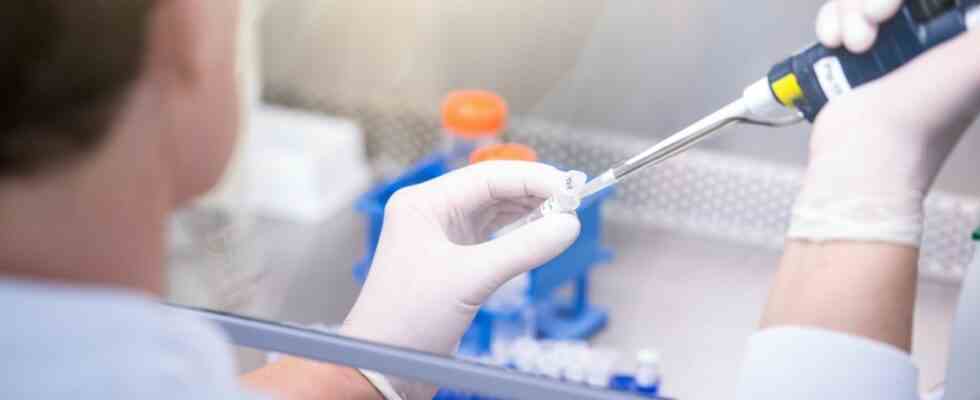Peter Hanns Zobel, 57, is considered the father of start-up centers in Bavaria. For more than 25 years he has been the managing director of the innovation and start-up center for biotechnology (IZB) in the Planegger district of Martinsried, where 700 employees work in around 50 start-ups on 26,000 square meters. Around 70 million euros have flowed into basic investments in Martinsried in recent years, half each from the Free State and as loans from banks. The IZB is considered to be one of the most important research institutes in the field of start-ups in Europe. The SZ spoke to Zobel against the background of the CSU’s push for a new start-up center with a focus on renewable energies and alternative drive technologies.
SZ: Mr. Zobel, at the beginning your biotech start-up center was anything but welcome: Citizens’ initiatives and local councils from all parliamentary groups were afraid of genetic engineering, of HIV viruses that could be floating around, of gene laboratories. Everything is different today: the idea of a new start-up center for the energy transition in the district no longer leads to protests, on the contrary: approval from all sides.
Peter Hanns Zobel: That’s true. Our start was difficult, everything was rather small. And the word “biotechnology” had negative connotations. Today, people understand that start-up issues affect us all – especially biotechnology and sustainability. Without start-up centers there would probably be fewer and less successful start-ups in Germany. Because it is a long way from invention to market entry. The right infrastructure and the network to multipliers and other start-ups are the key to success. Business incubators are catalysts, for example new medicines or environmental technologies are developed. The prerequisite: A – very important – new infrastructure is created, open land areas are needed. Spin-offs from universities and other institutes are crucial. The founders later become entrepreneurs. They are the engine for everything we value.
Are models like the IZB still up to date? The state provides inexpensive space, well-equipped laboratories and the necessary infrastructure and actually takes care of everything. Anyone can come to you for advice. service all round.
Yes that’s right. But I would like to emphasize that we always offer at market prices. The fact that the laboratories are well equipped and furnished is an invaluable advantage for tenants. Here we offer meeting rooms, a hotel, two kindergartens, a chemistry school, a faculty club, a wealth of networking events, PR and marketing. It’s not just about concrete, the equipment is crucial. And: There has to be a concept that is geared towards the industry. You have to do everything to ensure that the founders are successful and satisfied.
Peter Hanns Zobel is Managing Director of the IZB in Martinsried.
(Photo: Alessandra Schellnegger/)
Speaking of successful: How is the degree of success measured?
Look around. We wouldn’t be here if we weren’t successful. Of the 200 start-ups that we have had here in 27 years, only nine have gone bankrupt – most of them during the years of the demise of the Neuer Markt around the year 2000. The cutting-edge research at the IZB is met with great interest worldwide. In 2015 alone, our start-ups concluded deals worth more than four billion dollars with top-class cooperation partners, thus bringing capital to Bavaria.
Can you present us with some significant results from years of research?
As I said: Since 2015 alone, more than four billion have flowed into IZB start-ups – only people who are successful get that. Drugs, scientific devices and diagnostic methods have been developed at the IZB. The corona vaccine manufacturer Biontech is represented here with another division. Paternity tests using hair analysis were developed here, there are cancer medications for humans and animals, and a sticker was invented at the IZB Weihenstephan that detects fires and fires at the earliest stage – much earlier than conventional fire alarms. A biopsy is often no longer needed to examine the prostate; it can be done with a new liquid biopsy test that was developed here. Products based on artificial spider silk derived from bacteria have been explored. This high-performance material is now used in medical technology for breast implants or in the luxury goods industry instead of conventional silk or in cosmetics. It is also used as an environmentally friendly pesticide by the world’s largest grain supplier from the USA. I could list endless innovations here. All of this is biotech. A word on the timeline: the development of a drug to market maturity in Germany takes an average of twelve years and costs around 1.3 billion euros.
If you had to sum up and take a look at the future of incubators, what would that look like?
Our start-up center has definitely proven itself. From my point of view, we only need one thing: growth potential in qualitative and quantitative terms. If this can be done quickly and unbureaucratically, we will work our way to the top as a biotechnology hotspot.

